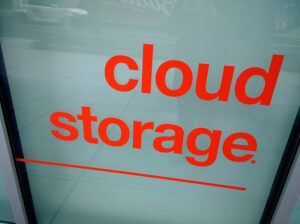
On its surface, the cloud is a relatively simple idea…except where sales taxes are concerned. Individuals and businesses use the cloud to access programs or store data via the Internet. There is usually no tangible property or service you can physically hold, nor can these materials be downloaded. However, you can often use them as you would previously have used the tangible version (i.e. digital music vs. a CD or software off the shelf vs. software as a service (“SaaS”) and that’s where this issue gets complicated. The cloud challenges standard definitions of property and raises serious questions about taxation, both for sales tax and income tax.
Good or Service?
Say you purchase the use of “software” from a cloud provider for use in your business. Does it count as a tangible good even though the traditional rules don’t apply? A key component of personal property is whether or not the item can be touched or otherwise “perceived by the senses.” For instance, a house is real estate, a car is personal property. These are important distinctions because classification determines what kinds of taxes apply. The water only gets muddier when you consider how the software is accessed. Chances are your business uses some form of cloud hosting service. Does this make the good a service? This is an argument that will need to be addressed as more and companies move toward cloud commerce.
Location, Location, Location?
Sales and use taxes depend largely on where a product or service is purchased, or where it’s delivered. The cloud distorts our traditional understanding of boundaries. An example would be if your business purchased a streaming service that utilizes the cloud. Assuming your business operates in more than one state, which tax rate do you use: one, two, none?
The solution to this dilemma isn’t clear. Our current sales tax system consists of the rules of many different states, cities and counties. As the states are deciding this issue there is significant confusion. The states already disagree as to the treatment of SaaS – some taxing it as software, some not taxing it by providing an exemption for the transfer of digital goods, and some have yet to weigh it at all. In the end, perhaps the federal government will step in and settle the debate. However, as we’ve seen with the stalled Marketplace Fairness Act, movement on any tax related issue in a divided Congress seems unlikely.
Photo Credit: Jeff Wilcox via Flickr













